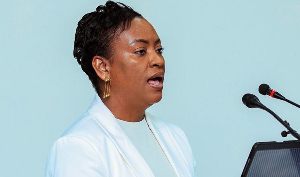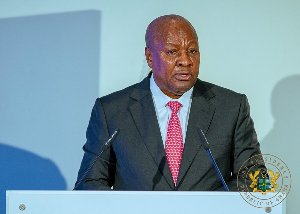The IMANI Centre for Policy and Education on Friday called on government to render proper accounts on the disbursement of oil and gas revenues over the past four years.
The Centre’s Researchers are arguing that the huge financial spending from the Annual Budget Funding Amount (ABFA) between 2011 and 2013, to the road infrastructural sector were unnecessary.
The Centre said compared to what went into health, education and agricultural sectors, which were facing serious challenges due to dwindling donor support, the amounts that went to the road sector was on the higher side.
Dr Kofi Boahen, Research Officer and Deputy Business Lead at IMANI said findings from their study shows that efficiency of spending of petroleum revenue still remains a challenge, as ABFA funds were thinly distributed over many capital projects, and that, this would obviously delay the socio-economic benefits of these projects.
Dr Boahen, who presented a report on “Citizens’ demand for Accountability in Ghana’s Oil and Gas sector,” at a workshop in Accra, said considering the fact that both the health and agricultural sectors depended on donor support, which was currently dwindling, the ABFA should be increased to sustain their development.
He said to allocate 41.2 percentage of ABFA spending on road infrastructure as against 0.02 per cent for Health and 14.41 per cent for agriculture, cannot be seen as efficient management of the oil and gas revenue, which was expected to make an impact on the people.
He recommended that government rather commits substantial portions of the petroleum revenues to the pro-poor sectors, as these sectors were pivotal in the pursuit to sustainable economic development.
He also asked government to curb the spending efficiency canker, and that, spending of petroleum revenues should be based on an investment plan guided by a long-term national development or medium term development framework.
Dr Boahen also requested the regular publication of Accountability and Transparency reports on all petroleum funded projects to help curb the discrepancies in data published by Government and Accountability institutions.
Mr Theo Acheampong, a Petroleum Economist and Fellow of IMANI, said it was important that Ghana comes out quickly with a National Long Term Development Plan to guide the use and prevent the misuse of natural resources.
There was, therefore, the need to increase stakeholder engagements on how and what goes into the decisions and selection of the four project areas where petroleum revenues were to be applied by the ABFA funding.
He also asked for budgetary allocations for Accountability institutions such as PIAC, which was being starved of funding to enable it to effectively monitor how petroleum expenditure and revenues are applied.
Business News of Sunday, 10 May 2015
Source: GNA
IMANI demand for proper accountability for oil and gas revenue
Entertainment












